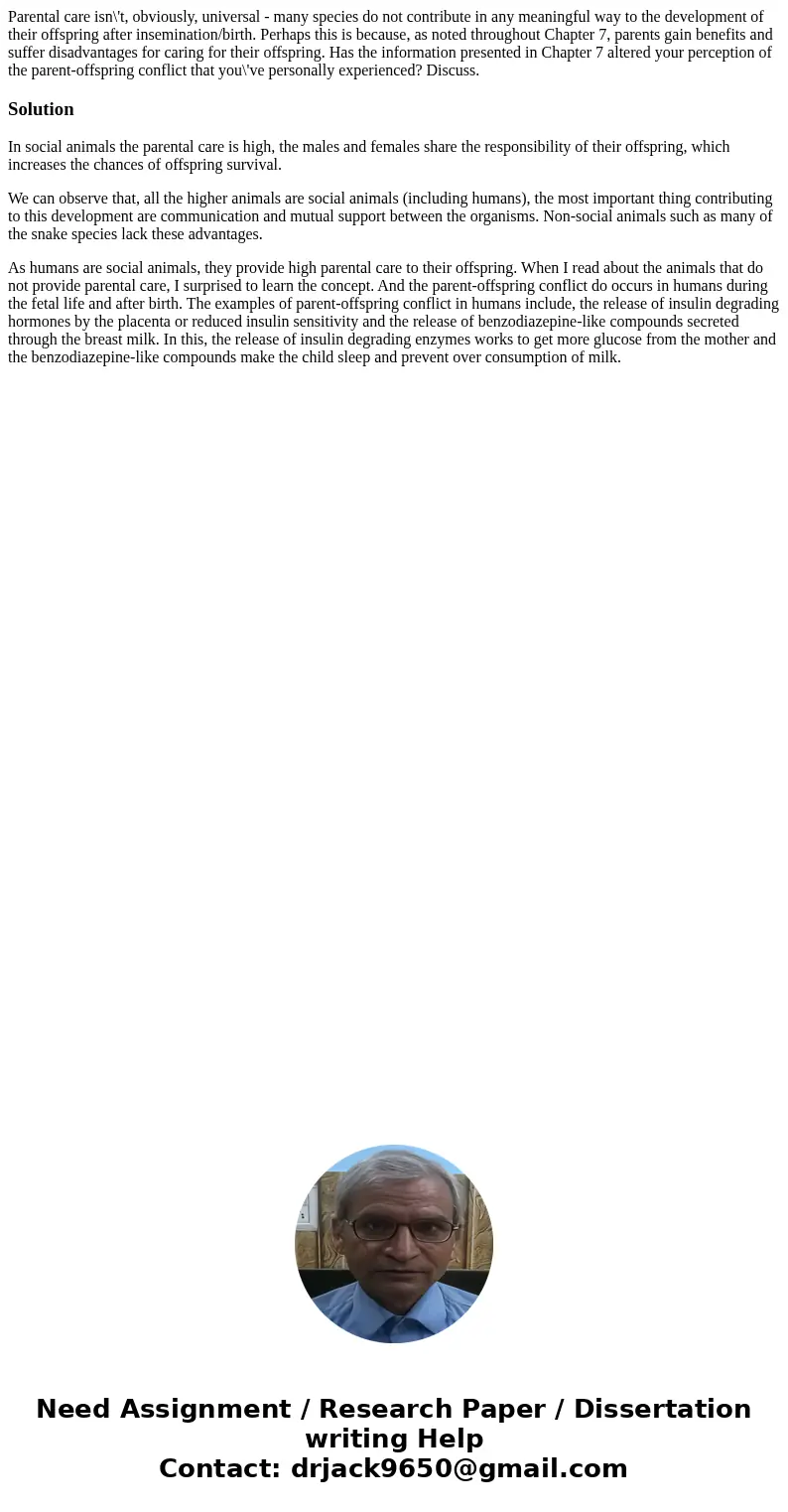Parental care isnt obviously universal many species do not
Parental care isn\'t, obviously, universal - many species do not contribute in any meaningful way to the development of their offspring after insemination/birth. Perhaps this is because, as noted throughout Chapter 7, parents gain benefits and suffer disadvantages for caring for their offspring. Has the information presented in Chapter 7 altered your perception of the parent-offspring conflict that you\'ve personally experienced? Discuss.
Solution
In social animals the parental care is high, the males and females share the responsibility of their offspring, which increases the chances of offspring survival.
We can observe that, all the higher animals are social animals (including humans), the most important thing contributing to this development are communication and mutual support between the organisms. Non-social animals such as many of the snake species lack these advantages.
As humans are social animals, they provide high parental care to their offspring. When I read about the animals that do not provide parental care, I surprised to learn the concept. And the parent-offspring conflict do occurs in humans during the fetal life and after birth. The examples of parent-offspring conflict in humans include, the release of insulin degrading hormones by the placenta or reduced insulin sensitivity and the release of benzodiazepine-like compounds secreted through the breast milk. In this, the release of insulin degrading enzymes works to get more glucose from the mother and the benzodiazepine-like compounds make the child sleep and prevent over consumption of milk.

 Homework Sourse
Homework Sourse